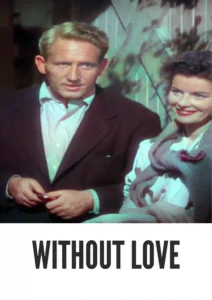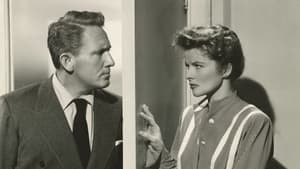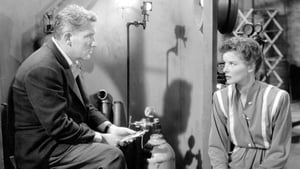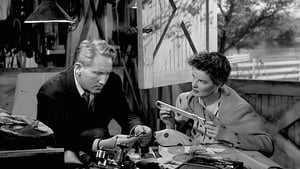Contact: info@alwanfilm.com
Video Sources 0 Views

Synopsis
Without Love 1945 Colorized Review: A Romantic Comedy That Defies Convention

Introduction
In the realm of classic cinema, the 1945 romantic comedy Without Love holds a unique place. Directed by Harold S. Bucquet and based on the play by Philip Barry, this film stars the remarkable Katharine Hepburn and the charming Spencer Tracy, a duo whose chemistry on-screen remains legendary. What sets Without Love apart from traditional romantic comedies is its subversion of the genre’s conventions, presenting a story that prioritizes character development and emotional depth over typical romantic tropes. In this review, we will explore the film’s impact, its significance in the context of 1940s cinema, and how it remains relevant today, particularly in its portrayal of love, companionship, and the challenges of modern relationships.
Check The Full Colorized Movies List
Check Our Colorized Movies Trailer Channel
Understanding Without Love 1945 Colorized: Director, Cast, and Genre
Director’s Vision
Harold S. Bucquet, known for his ability to create engaging narratives, directed Without Love with a keen focus on character relationships and emotional authenticity. Bucquet understood that the film’s strength lay in its dialogue and character interactions rather than grand romantic gestures or dramatic climaxes. His direction highlights the subtleties of human connection, making the film a thoughtful exploration of love in its various forms.
The Iconic Performance of Actors
The performances of Katharine Hepburn and Spencer Tracy are the film’s beating heart. Hepburn portrays Jamie Rowan, a strong-willed woman who is determined to create her own life and decisions. Hepburn’s portrayal is marked by her signature blend of wit and vulnerability, bringing depth to a character that resonates with audiences.
Tracy stars as Pat Jamison, an engineer who enters into a marriage of convenience with Jamie, leading to unexpected emotional entanglements. Tracy’s natural charm and nuanced performance create a captivating dynamic with Hepburn, resulting in one of the most memorable on-screen pairings of the era.
Exploring the Genre
Without Love is firmly rooted in the romantic comedy genre, but it differentiates itself by subverting many of its conventions. While traditional romantic comedies often focus on courtship, misunderstandings, and eventual declarations of love, this film takes a more pragmatic approach. It presents a marriage that begins as a practical arrangement rather than a romantic ideal, exploring the evolution of their relationship against the backdrop of World War II.
Exploring the World of Without Love 1945 Colorized: Plot and Characters
Detailed Synopsis
Without Love opens in Washington, D.C., during World War II, where Jamie Rowan (Hepburn) is a young woman with a bright future in the world of research. When her plans to create a life for herself are interrupted, she meets Pat Jamison (Tracy), an engineer who proposes a practical solution to her predicament: a marriage of convenience.
Initially, the arrangement is purely logistical, allowing Jamie to maintain her independence while providing Pat with a stable domestic environment. As the story unfolds, the audience witnesses the complexities of their relationship. They navigate the challenges of a war-torn world while slowly discovering a deep emotional connection that transcends their original agreement.
The film is populated with memorable supporting characters, including Jamie’s friend and roommate, who adds comedic relief, and Pat’s family members, who provide insight into the pressures and expectations of marriage. Each character contributes to the overall narrative, enriching the exploration of love and companionship.
The Art of Film Narrative
Understanding the Process
Without Love deftly weaves together comedy and drama, utilizing dialogue-driven scenes that showcase the chemistry between Hepburn and Tracy. The film’s script is filled with sharp, witty exchanges that highlight the characters’ personalities and evolving relationship. Bucquet’s direction emphasizes these interactions, creating a fluid narrative that draws viewers into Jamie and Pat’s world.
The film’s pacing allows for moments of reflection, inviting the audience to engage with the characters on a deeper level. The thoughtful integration of humor and heartfelt moments enhances the narrative, making Without Love a captivating viewing experience.
Early 1940s Romantic Comedies: A Brief Context
The Emergence of Romantic Comedy in the 1940s
The 1940s marked a significant evolution in the romantic comedy genre. While earlier films often adhered to conventional tropes, the wartime context prompted filmmakers to explore more nuanced themes. Romantic comedies of this era began to address complex social issues, reflecting the changing dynamics of relationships and gender roles during World War II.
Without Love is emblematic of this shift, presenting a story that challenges traditional notions of romance. Instead of focusing solely on courtship, the film delves into the intricacies of partnership, showcasing the characters’ growth and development as they navigate their unconventional marriage.
Without Love 1945 Colorized and Its Legacy
The Decision to Approach Romance Differently
The decision to approach romance through a lens of practicality rather than idealism is a defining feature of Without Love (1945). This unique perspective resonates with audiences, particularly during a time when many were grappling with the realities of war and the complexities of relationships. The film’s exploration of companionship and emotional connection speaks to a broader understanding of love that transcends romantic ideals.
Impact on the Romantic Comedy Genre
Without Love has left a lasting impact on the romantic comedy genre, paving the way for future films that prioritize character development and emotional depth. The film’s focus on a marriage of convenience as a starting point for love influenced subsequent romantic comedies, encouraging filmmakers to explore the complexities of relationships in more nuanced ways.
Themes Explored in Without Love 1945 Colorized
Companionship and the Evolution of Love
One of the central themes of Without Love is the evolution of companionship. Jamie and Pat’s relationship begins as a practical arrangement, but as they navigate the challenges of life together, their bond deepens. The film explores the idea that love can develop from shared experiences, understanding, and respect rather than the traditional notion of romance.
Gender Roles and Independence
Without Love also addresses issues of gender roles and independence. Jamie Rowan is portrayed as a strong, independent woman who values her career and autonomy. Her relationship with Pat is built on mutual respect, challenging the traditional expectations of marriage and partnership. The film encourages viewers to consider the importance of companionship and support in relationships, regardless of societal norms.
Reception and Controversy Surrounding Without Love 1945 Colorized
Initial Reviews and Audience Reactions
Upon its release, Without Love received positive reviews for its witty dialogue and the performances of its lead actors. Critics praised Hepburn and Tracy’s chemistry, noting that their on-screen dynamic elevated the film’s narrative. The film’s subversion of traditional romantic comedy tropes was also well-received, with audiences appreciating its fresh approach to love and relationships.
While the film did not spark significant controversy upon its release, it did challenge the prevailing romantic ideals of the time, prompting discussions about the nature of love and companionship in an evolving world.
Where to Watch Without Love 1945 Colorized Online
For those interested in experiencing Without Love (1945), the film is available on several streaming platforms. Viewers can find it on popular services like Amazon Prime Video and the Criterion Channel, where it can be streamed or rented. Additionally, DVD and Blu-ray editions of the film are available for purchase, providing fans with the opportunity to enjoy this classic romantic comedy in their home collections.
FAQs About Without Love 1945 Colorized
Q: What is the significance of Without Love (1945) in cinematic history?
A: Without Love (1945) is significant for its subversion of traditional romantic comedy tropes, presenting a marriage of convenience that evolves into a deeper emotional connection. The film reflects the changing dynamics of relationships during World War II.
Q: Who directed Without Love (1945)?
A: The film was directed by Harold S. Bucquet, known for his ability to create engaging narratives that prioritize character development and emotional depth.
Q: What themes are explored in Without Love (1945)?
A: The film explores themes of companionship, the evolution of love, and gender roles, presenting a thoughtful examination of relationships that challenges traditional romantic ideals.
Q: How did audiences react to Without Love (1945) upon its release?
A: Upon its release, Without Love received positive reviews for its witty dialogue and the performances of its lead actors, particularly Katharine Hepburn and Spencer Tracy. Audiences appreciated its fresh approach to love and relationships.
Conclusion
Without Love (1945) remains a captivating exploration of love, companionship, and the complexities of modern relationships. Directed by Harold S. Bucquet and featuring the iconic pairing of Katharine Hepburn and Spencer Tracy, the film offers a refreshing take on romantic comedy that resonates with audiences today. Its subversion of traditional tropes and emphasis on character development sets it apart in the genre, making it a timeless classic. Whether you’re a long-time fan of Hepburn and Tracy or new to their work, Without Love is a film that invites viewers to reconsider their understanding of love and partnership, offering valuable insights that remain relevant in today’s world.












